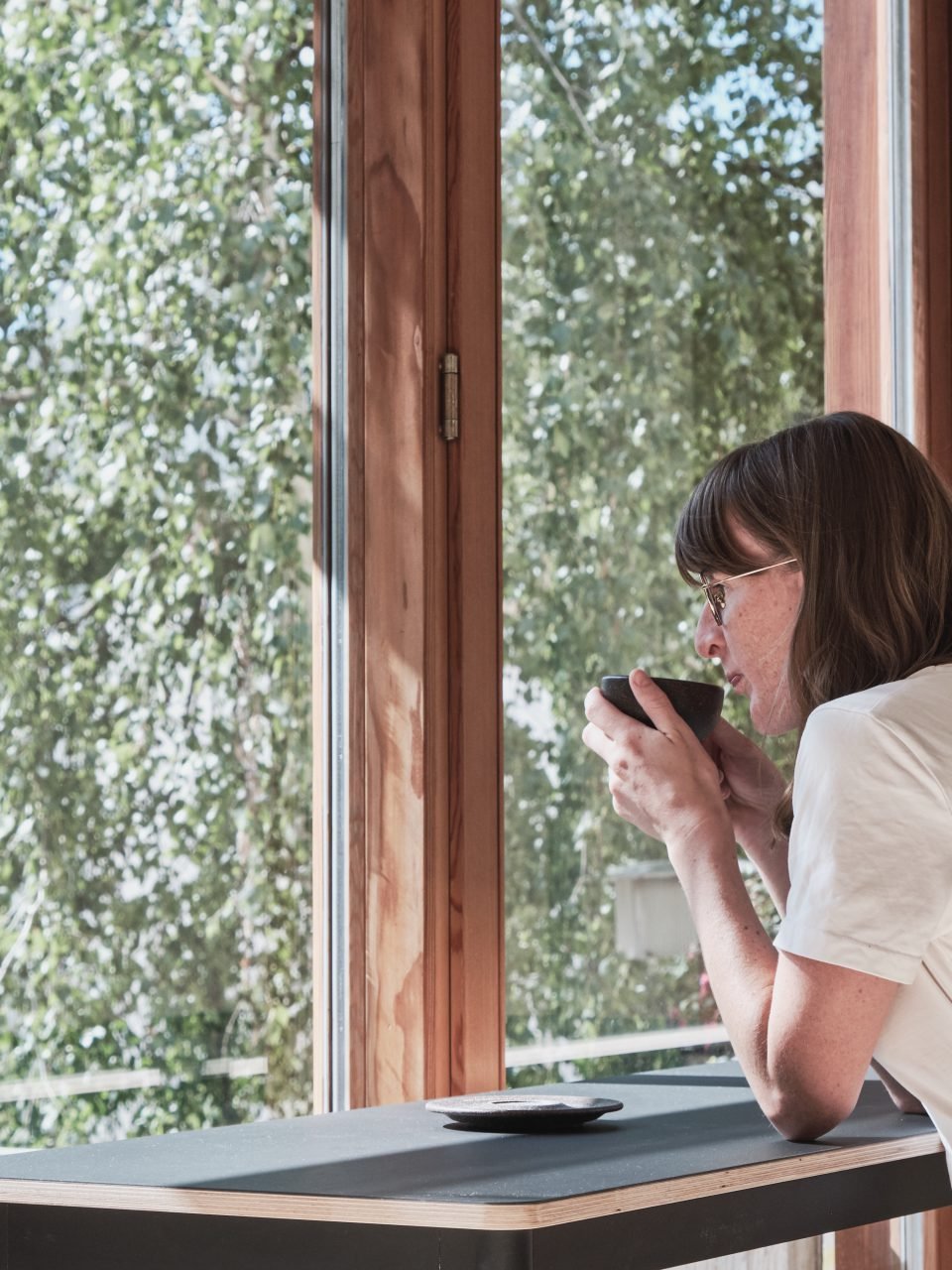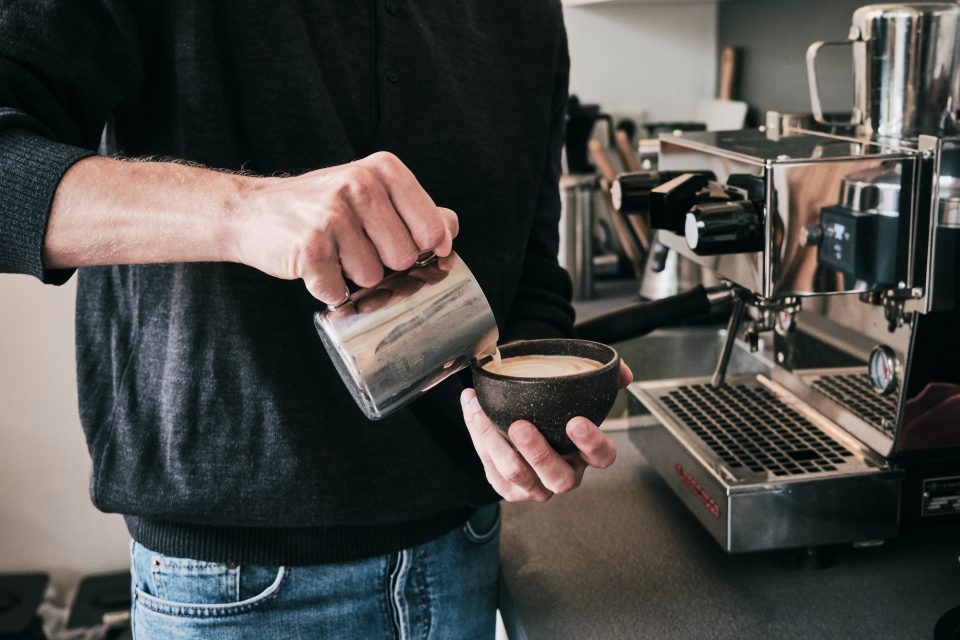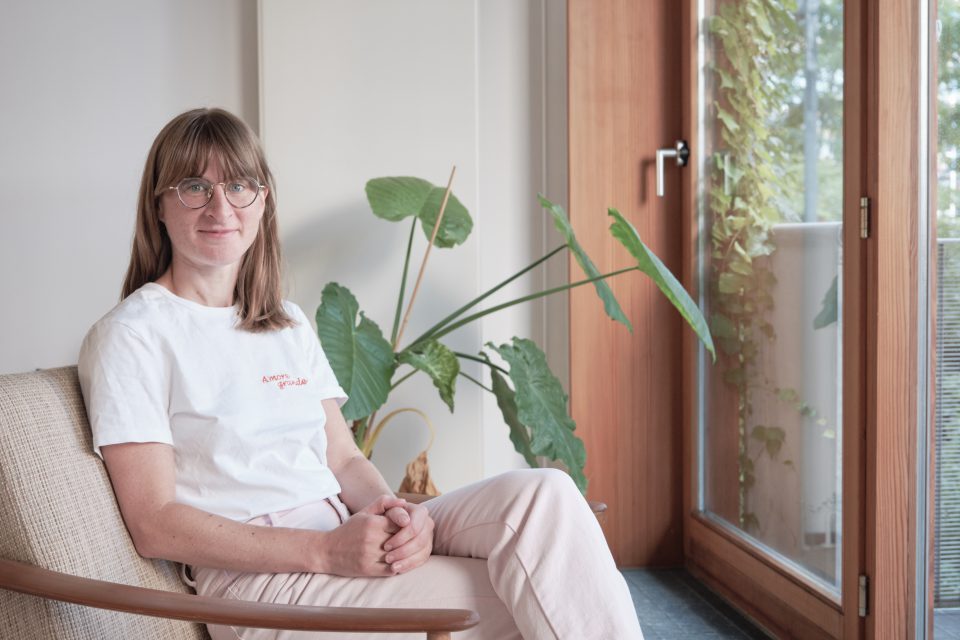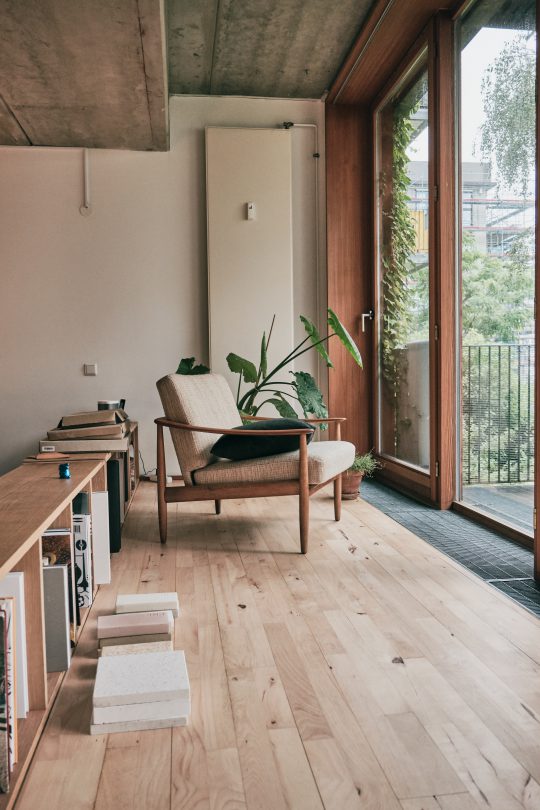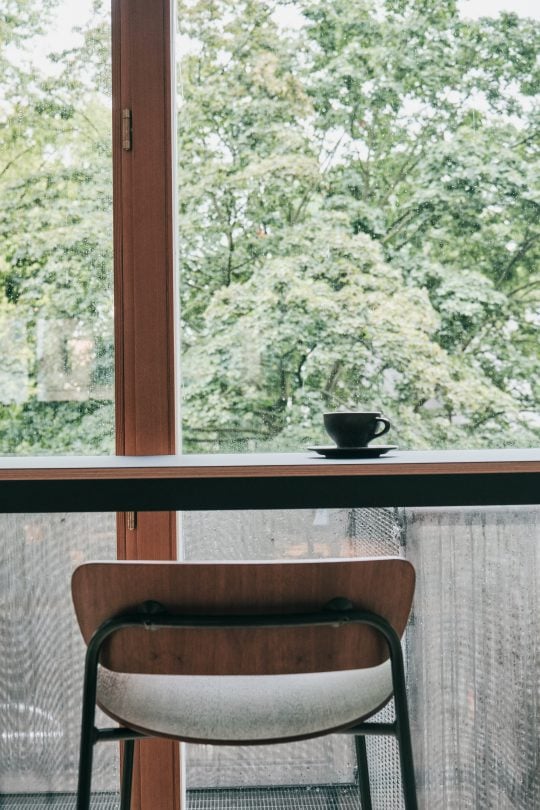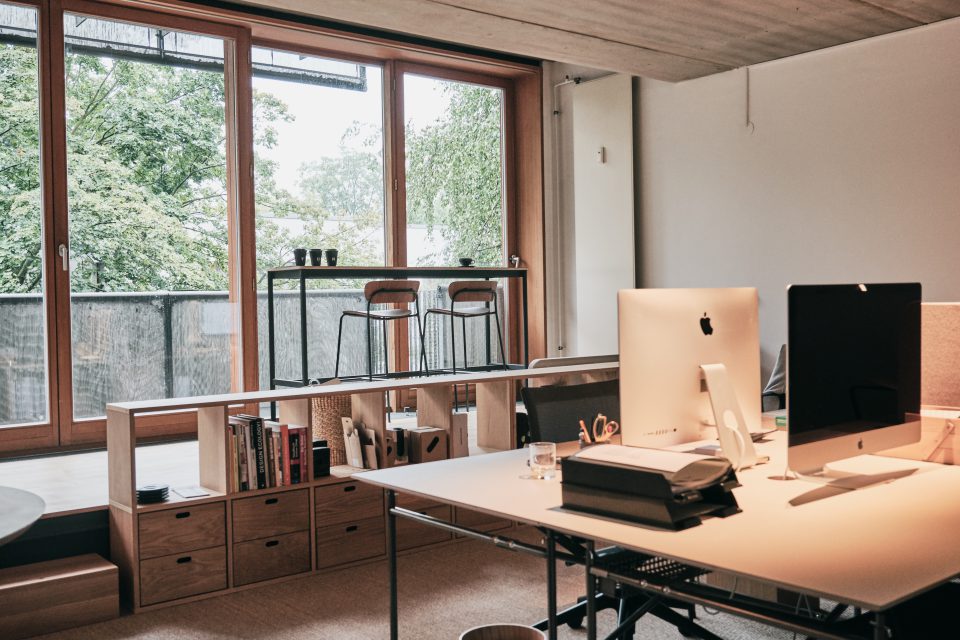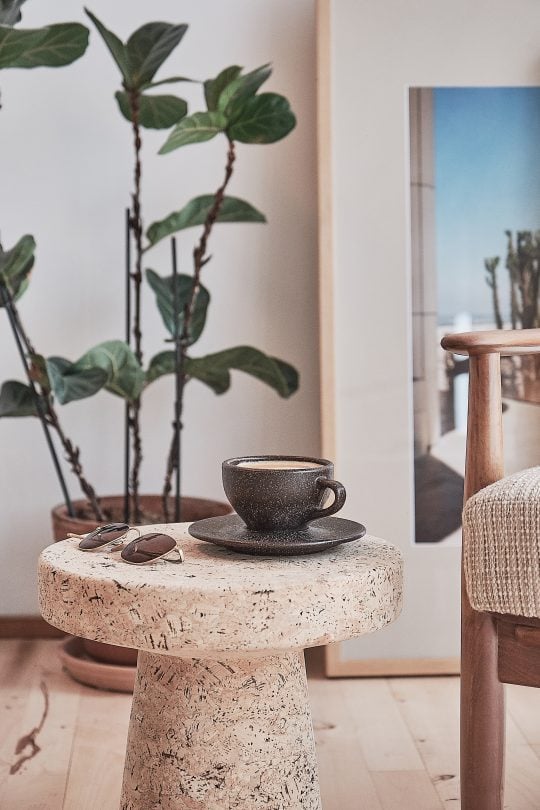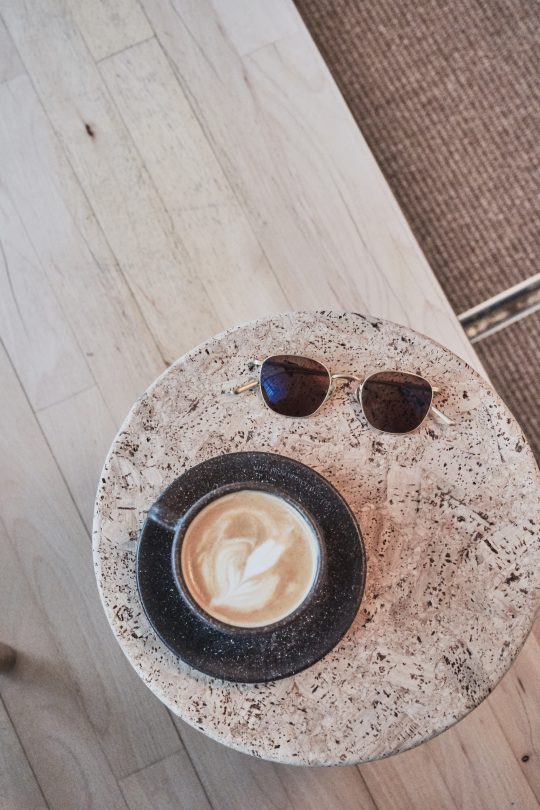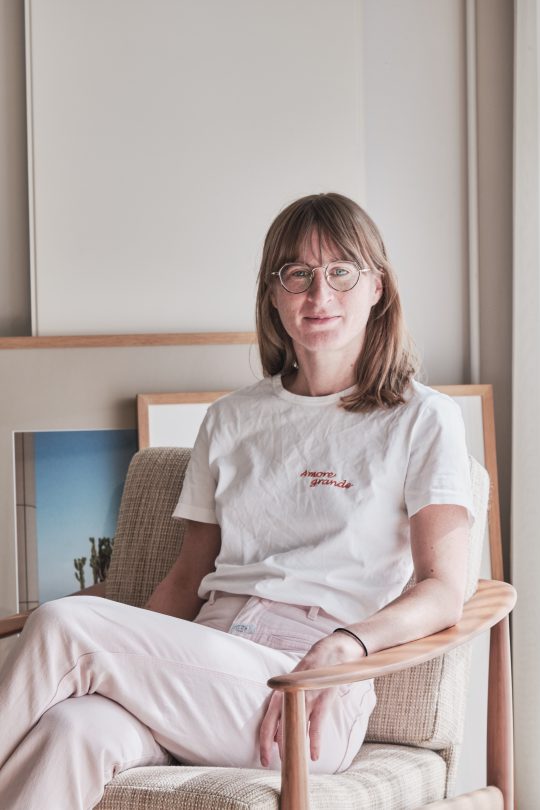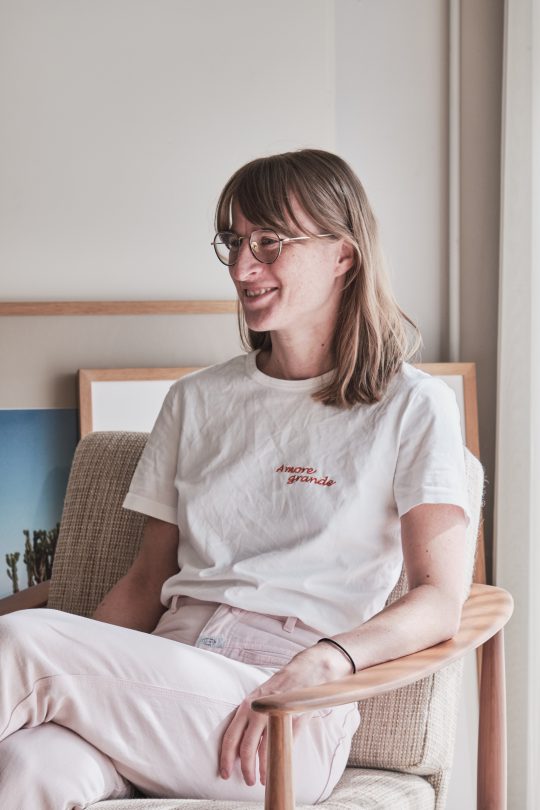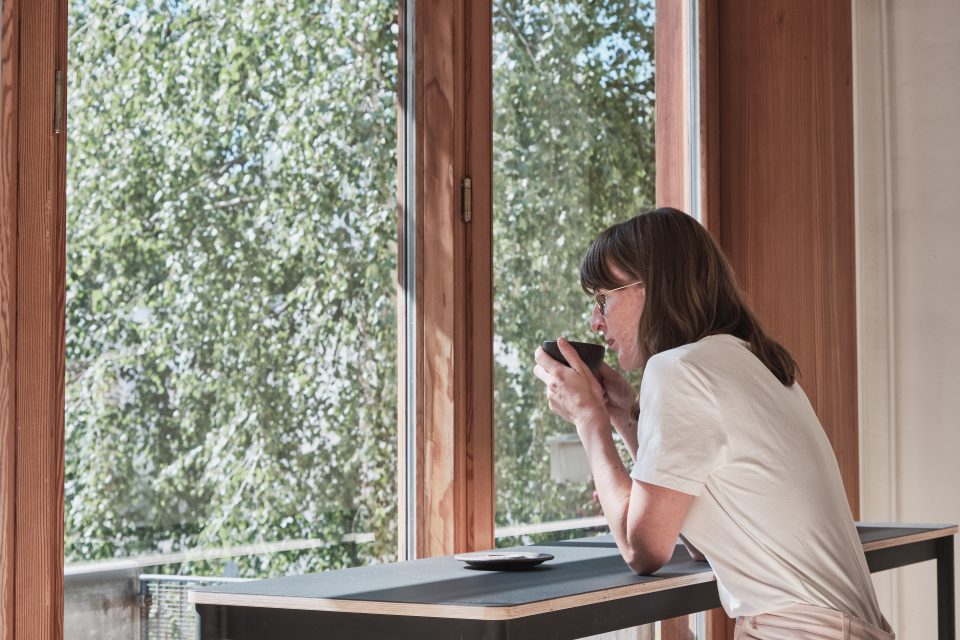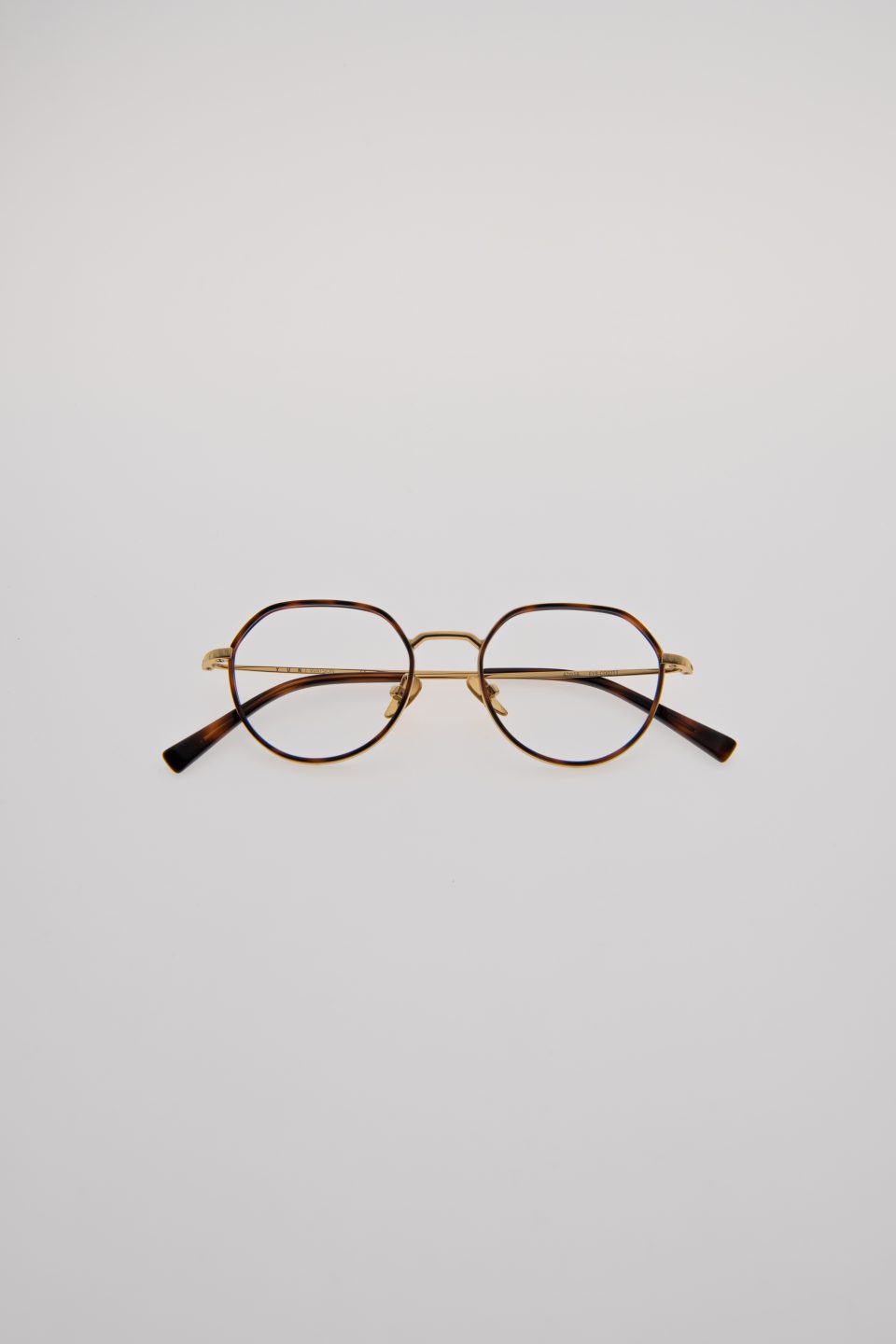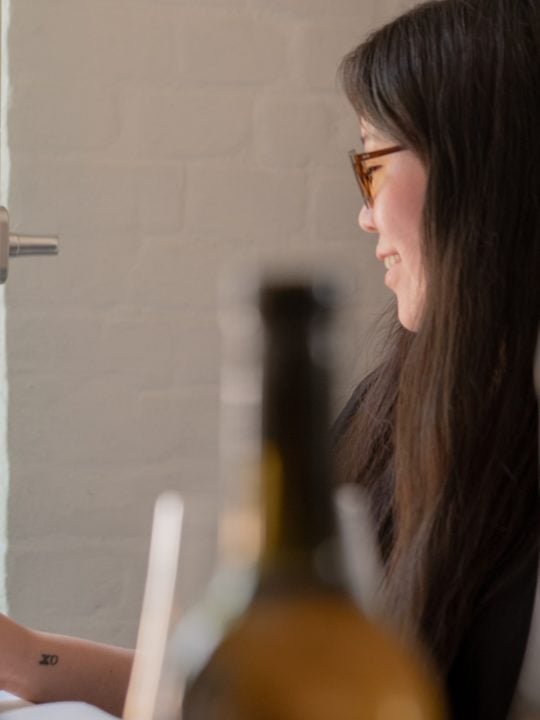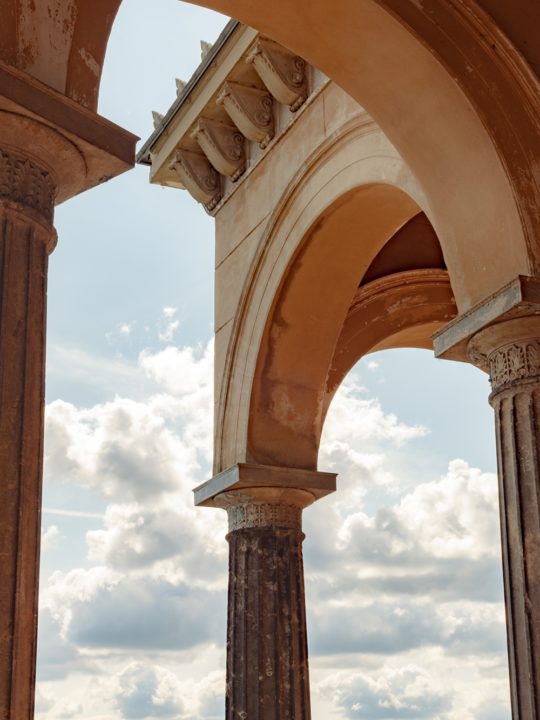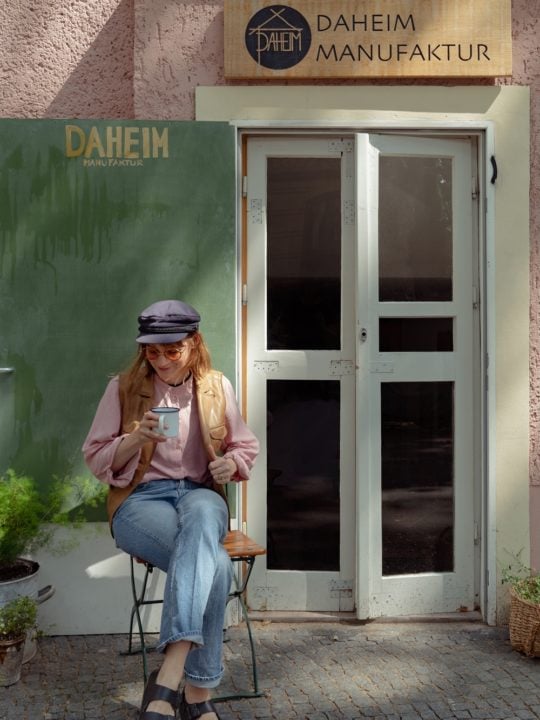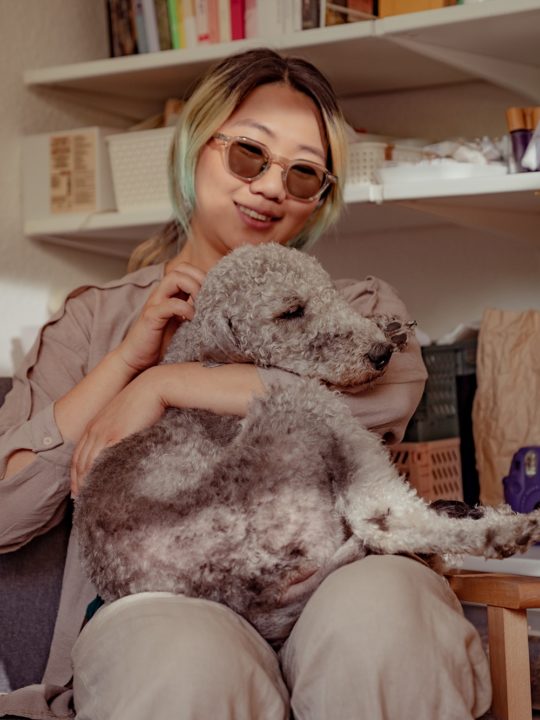COFFEE CUPS, FROM THE GROUND UP
Coffee cups made from coffee grounds- In conversation with Anika Paulus, Head Of Communications at KaffeeForm
(2.5 MINUTE READ)
In conversation with Anika Paulus, Head Of Communications at KaffeeForm
“We all wear our Hausschuhe here!” Anika tells me cheerily as I step into the brand new KaffeeForm office and slip off my damp trainers.
It’s pouring in Berlin and my puddle-dipped hems seem scruffy against the clean, cream carpet. Nobody minds, of course, the brains behind the Kaffeeform operation are engrossed in their work, eyes fixed on their Macs, espresso cups empty. In lieu of a pair of Birkenstock sandals (which the whole team don), padding about in my socks seems a cosy compromise.
The appointed barista of the office, Franzi, hands me an oak milk cappuccino and I’m instantly at home. The coffee is deliciously smooth and it’s no wonder- these guys know their mochas from their macchiatos. “There is a lot of coffee involved in our daily work life, I try to stick to maximum three a day- but it can be tough.” Anika jokes. Though if it weren’t for a shared love of coffee, this unique and sustainable enterprise may never have existed.
It was in Italy that Julian Lechner, the founder of Kaffeeform, noticed the rough, semi-hard shape that forms in the portafilter from used coffee grounds.“Julian was drinking a lot of coffee during his design degree in Italy, and at some point he realised the huge waste that comes from an espresso machine.” Anika tells me.
“He started to think, could there be a way to use this already formed waste and make something new and long-lasting from it?”
This question grew into a five year pursuit for the perfect formula that would be the backbone and foundation of the business- a material made from 100% recycled and renewable resources, 40% of which are coffee grounds!
Once the material was actualised, it was time to form coffee cups from it- hence the name ‘Kaffeeform.
Julian began the range with the humble espresso cup, for it resembles slightly the shape you see in the filter handle before you chuck the grounds out. “The first cup Julian made is far from the product you see today” Anika says, gesturing to my empty cappuccino cup, it’s smooth yet natural finish and incredibly lightweight feel tell me that it was years in the making. “In 2015 Julian founded the company alongside his full time job and after the espresso cup, came the cappuccino cup in 2016, then the latte cup in 2018, followed by the Weducer cup.” You might recognise the tall, brown, portable Weducer cup from the shelves of various Berlin cafes, it’s become a kind of statement cup for people who care about the environment and is the most popular of all the Kaffeeform products.
Even more extraordinary than the actual products though, is the way in which they are produced.
“I think it’s crucial to tell you how we work because we try to be as green and socially responsible as possible.”
While the world of ‘conscious’ business is busy with this kind of rhetoric, I am struck by the team’s unrelenting and true commitment to such concepts. “Everything is made here in Germany. We have worked closely with a social workshop for people with disabilities since the start. At this workshop, they dry the coffee grounds, sieve and compress it and then send it to our partners in West Germany where the material is moulded before coming back to Berlin. The people at the workshop also package the cups and carry out quality control before it gets to our end customer.”
And as for the coffee grounds? They are collected by bike by a service called Crow that specialise in couriering everything from fridges to furniture across the city. The bikers at Crow collect the used grounds from start-ups and cafes before bringing them to the workshop. Anika reiterates what I’m quickly realising, “we are not purely profit-oriented, we absolutely have a social responsibility.”
It’s clear then that Kaffeeform are sustainable to their core, from the coffee collection to the final product- when I asked about coloured cups, Anika simply said “well then they might not be totally natural, because of the dye.”
Outside of coffee and the office, Anika tries to practise the same social responsibility at home, “I eat seasonally a lot and my perspective on resources has changed. I always ask can I reuse or recycle this? Do I need this?” Her advice on taking steps towards being more sustainable is to start small, “otherwise you’ll mess up and feel guilty about it, when it shouldn’t really feel like a struggle or a competition, especially not against yourself…
…Buy second hand, refuse single use plastic, stop the water while you shampoo….small things can be very inspiring.”
After all, this ‘small steps’ mentality is what helped create the cups, Julian wanted to make something that would help change people’s habits easily, so that bringing your Weducer cup is as routine as packing your wallet or your keys. “We wanted people to be able to bring the cup everywhere, which is why we made it super light and kind of indestructible- you can drop it from 1.5 metres and it won’t break” she says lightly dropping it on the table.
Small steps doesn’t mean the Kaffeeform team don’t think big though, Anika tells me they are working on developing lifestyle products such as a skateboard made from coffee grounds. (Is that the ultimate hipster accessory?) “It’s actually working! We have a prototype that Julian rides with. We are looking more into well designed objects that surprise people.” (I for one, cannot wait to be surprised).
When asked for her final thoughts on sustainability, Anika reiterates that it’s about compromise, “we are not here writing on typewriters and I’ve had one or two takeaway coffees during corona, but we are making compromises every day and not in a way that feels like we are losing out.” After all, what smaller compromise can we make today than swapping our take out cup for a Kaffeeform one instead? It’s the perfect small step.

